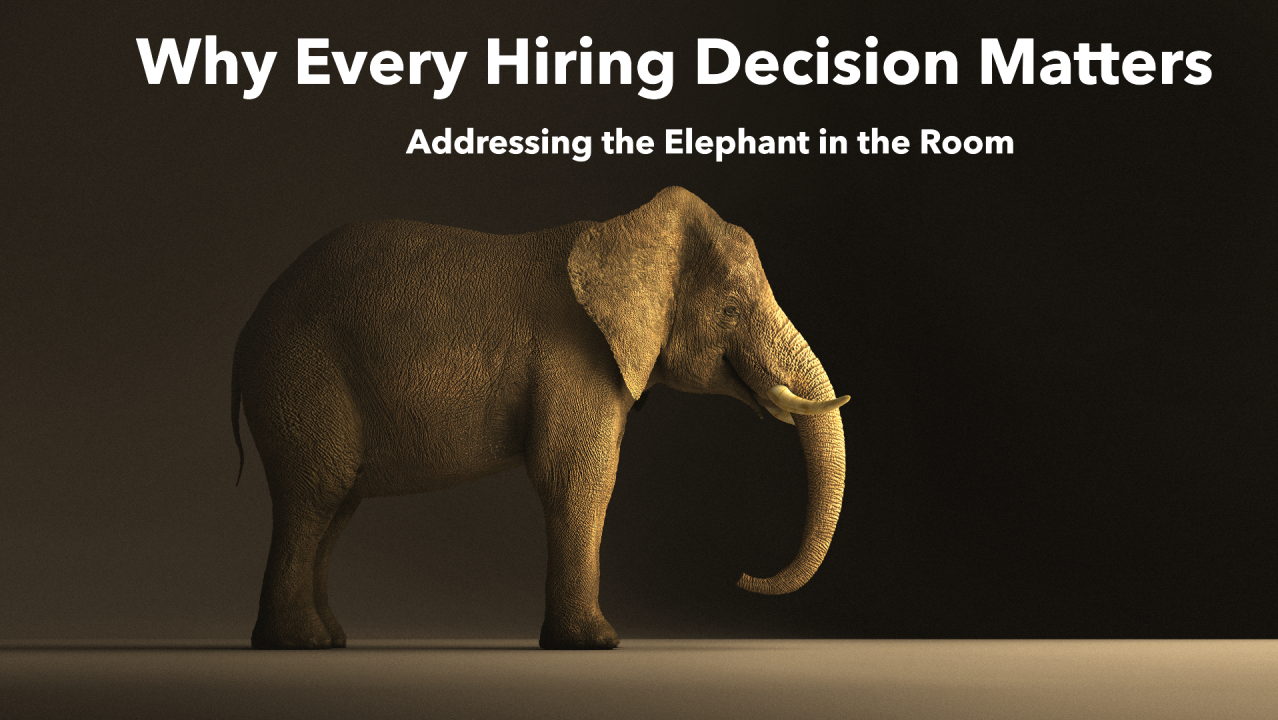The consequences of a mis-hire extend far beyond a budget line item. They impact nearly every facet...
For too long, hiring models have focused on surface-level qualifications. But in today's complex, fast-moving market, checking boxes on a resume is no longer enough to predict how a new hire will perform or whether they'll thrive.
In today's competitive and culturally driven market, Precision Talent Matching has emerged as the new benchmark, a methodology that combines traditional evaluation with deep behavioral assessments and cultural fit analysis. This approach doesn't just fill vacancies; it builds thriving, high-performing teams that align with an organization’s vision and values.
Let's explore why this evolution in recruitment is so vital.
The Traditional Pillars and Where They Fall Short
It’s worth revisiting the three long-standing benchmarks of hiring: skill set, sector knowledge, and experience. While these factors remain relevant, they no longer provide a complete view of a candidate’s fit or future performance.
Skill Set
Historically, recruiters have prioritized technical skills. Without the necessary competencies, a candidate cannot perform basic job functions. However, skills alone cannot predict adaptability, collaboration, or leadership. For instance, Google’s Project Oxygen found that soft skills like communication and coaching were eight times more predictive of team success than technical expertise. [1]
Sector Knowledge
Sector-specific expertise accelerates onboarding but doesn’t guarantee cultural fit. Consider Unilever’s AI-driven hiring overhaul: by prioritizing behavioral alignment over industry experience, they reduced hiring time by 75% and boosted diversity by 16%. [2]
Experience
Years of service suggest capability, but experience can mislead. A Fortune 500 retail company hired a CFO with 15 years of sector experience, only to see stock value drop 20% in 18 months due to cultural misalignment. [3]
The Limitation
Studies reveal that 68% of employee failures within 18 months are attributable to poor cultural fit. Beyond this, the average cost of a mis-hire often reaches 30% of the employee’s first-year earnings, a figure that frequently understates the profound financial and operational repercussions. [4]
Shifting the Lens: The Power of Behavioral Assessments
Unleashing Potential: The Behavioral Baseline
Behavioral assessments prevent mismatches by identifying how candidates naturally communicate, lead, and solve problems. Organizations using tools like Psychometrics report 36% higher retention and 24% better performance.
Cultural Alignment
Every organization has a unique cultural DNA. Southwest Airlines, for example, prioritizes “fun, loyalty, and humility” in hiring, resulting in a turnover rate of 6.3%, which is half the industry average. [5]
Reducing Risk
With 83% of HR leaders crediting behavioral data for improved hiring outcomes, these assessments cut through curated interview personas.[6] For remote roles, this is critical: while not always reported publicly, Gartner HR Research highlights poor self-management as a primary failure point for remote hires. [7]
Why Precision Talent Matching is the Future
The i-momentum™ Methodology
At ElitePath Management Group, our proprietary approach integrates:
- Behavioral Analytics: Real-time insights from validated behavioral tools to evaluate adaptability, communication style, and collaboration potential.
- Cultural DNA Mapping: Algorithms benchmarking candidates against your values (e.g., risk tolerance).
- Growth Predictors: Machine learning forecasting upskilling potential.
Unlike generic assessments, i-momentum™ uses continuous feedback loops post-hire. For example, a fintech client reduced mis-hires by 50% by tracking how “collaborator” profiles performed in team roles.
Results based on anonymized client data. Actual outcomes may vary.
Conclusion: A Necessity, Not an Advantage
With 76% of Gen Z candidates prioritizing cultural fit over salary, and remote work amplifying hiring risks, a more precise approach to talent matching is becoming an essential part of long-term hiring success. [8]
To discover how our i-momentum™ Methodology can transform your recruitment strategy and build high-performing teams, contact ElitePath Management Group today.
Footnotes
- HBR How Google Sold Its Engineers on Management
- Forbes The AI Recruitment Takeover Redefining Hiring in the Digital Age
- WSJ Finance Chiefs Switch Jobs, Retire as Companies Face Uncertainties
- How to Handle a Bad Hire
- HBR How Southwest Airlines Hires Such Dedicated People
- LinkedIn Global Talent Trends
- Gartner Workplace Trends That Business Leaders Must Address
- Deloitte 2025 Gen Z and Millennial Survey




.png)